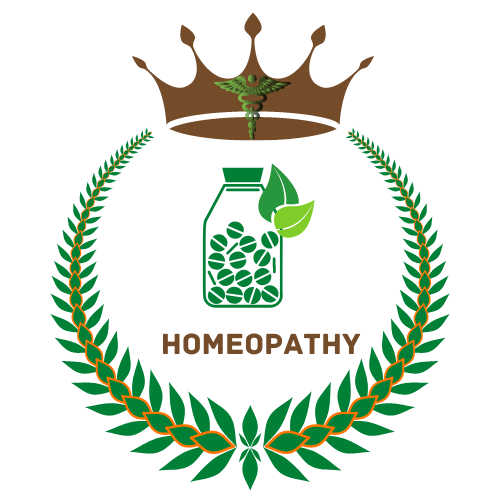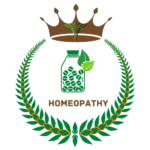
Homeopathy, an alternative form of medicine, has been gaining popularity in recent years due to its holistic approach to healing. This ancient practice, founded by Samuel Hahnemann in the late 18th century, is based on the principle of “like cures like” and has garnered attention for its unique method of preparing remedies. In this blog post, we will delve into the fascinating history of homeopathy, its preparation process, benefits, potential risks, and side effects, as well as how it is used in treatment.
HISTORY
Homeopathy’s roots can be traced back to the late 1700s when Samuel Hahnemann, a German physician, discovered the concept of “similars.” This principle suggests that a substance that causes symptoms in a healthy person can be used to treat similar symptoms in a sick individual. Hahnemann tested this theory on himself and fellow colleagues and began to develop the basic principles of homeopathy. The word “homeopathy” comes from the Greek words “homoios” (similar) and “pathos” (suffering).
One of the primary benefits of homeopathy is its holistic approach to treatment. Homeopaths consider not only the physical symptoms but also the emotional and mental aspects of a person’s health. This comprehensive approach aims to treat the individual as a whole, addressing the underlying causes of illness rather than just the symptoms.
Moreover, homeopathic remedies are typically derived from natural substances, such as plants and minerals, which makes them generally safe and non-toxic. This aspect is particularly appealing to individuals seeking alternative, gentle therapies.
Benefits
- Making of Homeopathic Remedies
- Potential Risks and Side Effects
The preparation of homeopathic remedies is a unique and intricate process. It involves a series of dilutions and succussions (vigorous shaking). The initial substance, known as the "mother tincture," is diluted in water or alcohol, and then vigorously shaken. This process is repeated multiple times to increase the remedy's potency while minimizing its toxicity. The idea behind this method is that the more a substance is diluted and succussed, the more powerful its healing effects become.
While homeopathy is generally considered safe for most people, there are some potential risks and side effects to be aware of. The extreme dilution of remedies means that they often contain minimal, if any, active molecules of the original substance. As a result, the scientific community has raised concerns about the efficacy of homeopathy beyond a placebo effect.
Additionally, some homeopathic remedies may interact with conventional medications, so it is essential to consult with a healthcare professional before starting any homeopathic treatment, especially if you have pre-existing medical conditions or are taking other medications.
Homeopathy in Treatment
Homeopathy is used to treat a wide range of acute and chronic conditions, including allergies, respiratory disorders, skin conditions, digestive issues, anxiety, and depression. Homeopathic treatment is individualized, with the homeopath considering the unique symptoms and characteristics of each person before prescribing a remedy.
It’s important to note that homeopathy is not a substitute for conventional medical treatment, and it is advisable to use it in conjunction with evidence-based medical care for certain conditions.




Types of Treatment
- Classical Homeopathy
- Clinical Homeopathy
- Isopathy
- Tautopathy
- Gemmotherapy
- Homeoprophylaxis
Classical homeopathy is the traditional and most widely practiced form of homeopathic treatment. In this approach, the homeopath conducts a detailed and comprehensive interview with the patient to understand their physical, emotional, and mental symptoms. The goal is to identify the most appropriate single remedy that matches the patient's overall symptom picture. The selected remedy is then administered in a highly diluted form, following the principles of "like cures like" and individualization.
Clinical homeopathy, also known as complex homeopathy or combination homeopathy, involves the use of pre-prepared combinations of homeopathic remedies to target specific conditions or symptoms. These combinations are often formulated based on established clinical experience and research. Unlike classical homeopathy, where a single remedy is prescribed, clinical homeopathy employs multiple remedies in a single preparation to address a specific health issue.
sopathy is a specialized form of homeopathy that uses the causative agents of a disease, such as bacteria, viruses, or allergens, as the basis for preparing homeopathic remedies. The idea is to use a highly diluted and potentized form of the causative agent to stimulate the body's healing response and help the patient overcome the illness. For example, in isopathic treatment for allergies, the homeopath may use highly diluted extracts of the allergen to desensitize the patient's immune system.
autopathy is a subset of isopathy that focuses on treating the adverse effects of previous conventional treatments or medications. The term "tautopathy" is derived from the Greek word "tauto" meaning "same." It involves using a highly diluted and potentized form of the original drug or substance that caused the harm to potentially counteract its effects and promote healing.
Gemmotherapy and organotherapy are specialized forms of homeopathy that use extracts from plant buds (gemmotherapy) or animal tissues and organs (organotherapy) to address specific conditions and support organ function. These remedies are typically used to target specific organs or systems in the body, and they are believed to have regenerative properties that aid in the body's healing process.
Homeoprophylaxis, also known as homeopathic immunization or homeopathic vaccination, is a controversial approach that aims to provide immunity against certain diseases using highly diluted and potentized remedies. Advocates of homeoprophylaxis believe that it can stimulate the body's natural defense mechanisms without introducing live pathogens or toxins. However, the efficacy and safety of homeoprophylaxis are subjects of debate and have not been widely accepted by the medical community.
Homeopathy offers a unique and holistic approach to healing, with many patients and practitioners reporting positive outcomes. However, it is essential to approach homeopathy with an open mind, while also being aware of its limitations and potential risks. If considering homeopathy as a treatment option, it is advisable to consult with qualified homeopathic practitioners and to use it in conjunction with evidence-based medical care, especially for serious or acute health conditions. The decision to use homeopathy should always be made in collaboration with healthcare professionals to ensure the best possible health outcomes.

